The cost of an annual undergraduate parking permit rose to $900 for the 2022-23 academic year, a 15% increase of $120 from the 2021-22 academic year. Annual graduate and professional student parking fees similarly increased by $160 to $600.
Prices for semester parking permits and annual reserved spaces also both rose by $40. The former went up to $300, and the latter went up to $2,240.
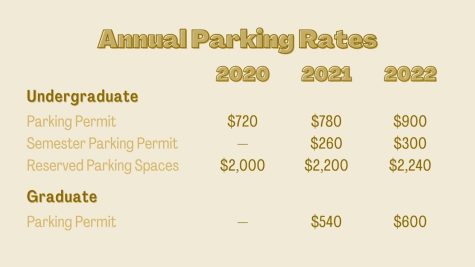
Junior Sam Sliman expressed frustration about the rising costs of on-campus parking. He referenced the $5.1 million of donations made to the university in 2022 as a cause for confusion over the increased prices.
“How about they quit begging us for money on Giving Day if they’re already raking us over the coals?” Sliman said.
According to a university representative, the parking price changes were implemented to keep up with the auxiliary budget of the university’s parking programs and facilities.
“We strive to provide our community with equitable parking options while keeping up with maintenance costs and market pricing,” the representative said in an email to The Hustler. “Parking costs paid by members of the Vanderbilt community ensure maintenance, enforcement and shuttle services continue to operate at the university.”
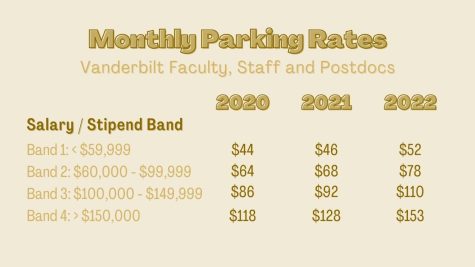
Senior Kerissa Bryant said she is skeptical about the university’s need and use of the extra revenue generated by the price increases, expressing concerns about financial transparency.
“[It] is just a broad way of saying ‘we’re taking more of your money for maintenance’ without actually being explicit about how that translates to us as students,” Bryant said. “I’d like to know exactly where that extra money is going.”
Some parking sites will be unavailable for the 2022-23 academic year due to construction closures. Open parking locations can be found using the university’s parking map, which shows all annual parking permits and hourly-paid parking locations on campus.
Overall higher cost of living
From 2019-22, both tuition and housing fees have increased by around 15%. The average cost of meal plans had a steeper rise of about 35%. The approximate increase in tuition, housing and average meal plan costs in the past year—6%, 6% and 12%, respectively—all fall below the annual parking permit’s 15% increase.
Senior Hannah Chen said the disproportionate rise in parking permit costs exacerbated the simultaneous annual increases in tuition, housing and meal plan fees. Per the university spokesperson, these price changes are due in part to external economic factors, such as surrounding market rates and inflation.
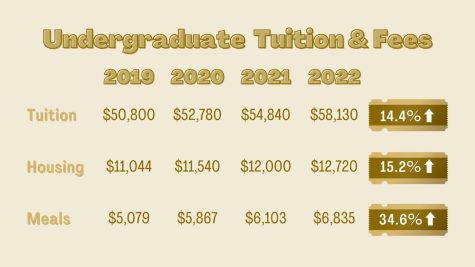
“The fact that Vandy is already scalping students with rising tuition prices, meal plan costs and housing costs on top of a significant increase in parking is ridiculous,” Chen said. “All of these cost increases only make living here less accessible.”
Chen said the benefits of purchasing a parking permit are not worth the steep price, stating that it is less costly to park illegally.
“Frankly, it’s more worth it to risk getting tickets all year,” Chen said.
Bryant echoed Chen’s sentiments, calling the permit price “ridiculous.”
“We’re already limited to where we can park, so it just feels like a money-grab to take advantage of students to me,” Bryant said.
Alternate parking options
Despite students’ concerns, the university spokesperson stated that Vanderbilt offers better parking prices than off-campus options.
“The Vanderbilt subsidized rates are much lower than non-Vanderbilt parking options available in the surrounding area,” the university’s email reads.
In comparison, Loews Vanderbilt Hotel Parking Garage, an off-campus parking location across Kissam Student Center, will also increase its monthly rates from $130 to $150 on Aug. 1, according to an email sent to sophomore Madison Gilbert by the Loews’s parking facility manager obtained by The Hustler. Gilbert said half-month prices are also available upon request for months when users would only be parking their cars until or starting from the midpoint of each month. Thus, parking at Loews for the 2022-23 academic year would cost roughly $1,275, including the $75 half-month fee for August, December and May.
Although this rate does not guarantee a parking spot, users are able to enter and exit the lot an unlimited number of times per day. Gilbert stated that there have always been spots available when she has tried to park.
“I never had a problem finding a parking spot, and I always felt like my car was safe in their garage because it’s covered from the weather and they have security cameras,” Gilbert said.
Vanderbilt is aiming to move towards a daily decision model to diversify modes of commute with sustainable choices like public transportation or bicycling. In August 2021, Vanderbilt expanded its daily parking program to 1,600 graduate/professional students, faculty, staff and postdocs. Participants pay a daily fee of $8 beginning September 1 only on days when they park on campus.
Along the same lines, Vanderbilt promotes alternative ways to navigate campus and Nashville as part of its long-term effort to reduce carbon emissions on campus. The university aims to drop the percentage of drive-alone commuters in the Vanderbilt community from 68% in 2019 to 47% by 2050 by encouraging more sustainable modes of transportation. Vanderbilt students, faculty, and staff can ride the local WeGo buses for free with their Commodore Cards. VandyRide services also offer a campus nighttime shuttle service during the school year from 6 p.m. to 1 a.m. CT.
Participants in the daily parking program are eligible to receive $1 each day that they choose a sustainable transportation method to work, such as walking, biking, using transit (train or bus) and carpooling. Such incentives do not exist for undergraduate students, including those who live off-campus.
Senior Connor Warmuth said these plans for a greener campus are minor in scope. Warmuth is a member of DivestVU, a student organization that advocates for Vanderbilt to divest from fossil fuels.
“They [the university] greenwash by saying that the high prices for parking on campus is part of their plan to make Vanderbilt a greener university,” Warmuth said. “If they divested from fossil fuels, it would be more effective at addressing climate change than making the campus ‘driverless.’”

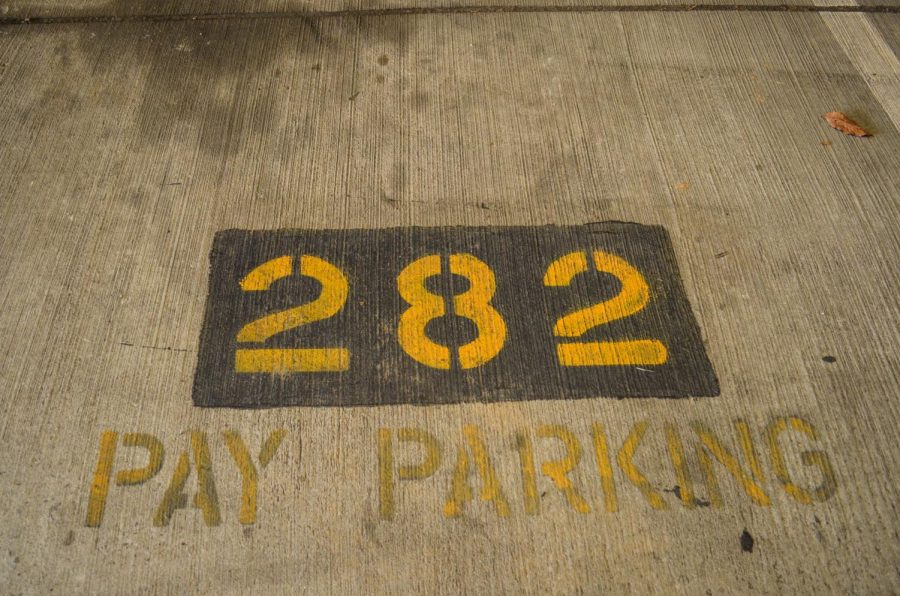



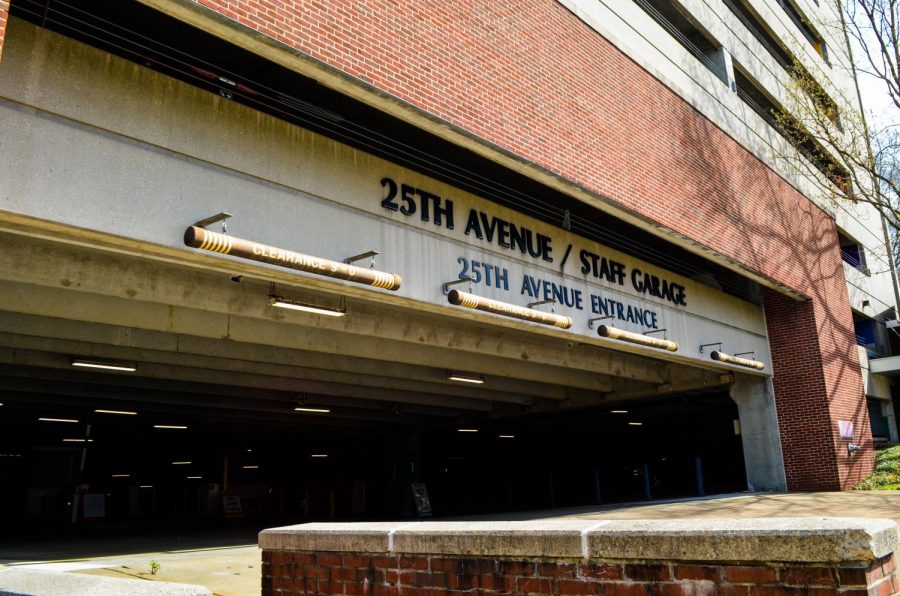


Student on fin-aid • Jul 31, 2022 at 9:02 pm CDT
If the OpportunityVU financial aid program is working as it’s supposed to (i.e., meeting 100% of demonstrated need), the only students affected by increased prices should be those who can afford to pay them. I personally have no issue with wealthy students facing marginal increases in tuition or housing costs—hey, maybe that extra revenue could be redirected back into OpportunityVU and make things less expensive for those who need the relief.
A potential compromise for the increases in parking costs could be allowing students to use Experience Vanderbilt funds toward parking.
Rachael Perrotta • Aug 13, 2022 at 2:40 pm CDT
For reference, the Office of Financial Aid and Scholarships does not include parking costs in their current cost breakdown, meaning that the Office does not deem them a necessary cost for every student. The Office did not respond to The Hustler’s request for comment regarding this matter.
Jonathan • Jul 30, 2022 at 6:24 pm CDT
Raised rates are a good thing. As the article notes, the university is still providing parking at below-market rates. Thus, even after the rate increase, we are providing a subsidy for those who drive. This encourages greater use of the single occupancy vehicles – a mode of transportation that wastes the most space, negatively impacts the health and well-being of the community more than any other, and is most harmful to the environment.
Driving to and from and around campus should be more difficult and expensive than employing other means of getting around – particularly given that the campus grounds are one of the most walkable, bikeable, and transit-capable locations in the entire city of Nashville.
MyTuitionIsHighEnough • Aug 2, 2022 at 12:29 pm CDT
Bet you’re fun at parties